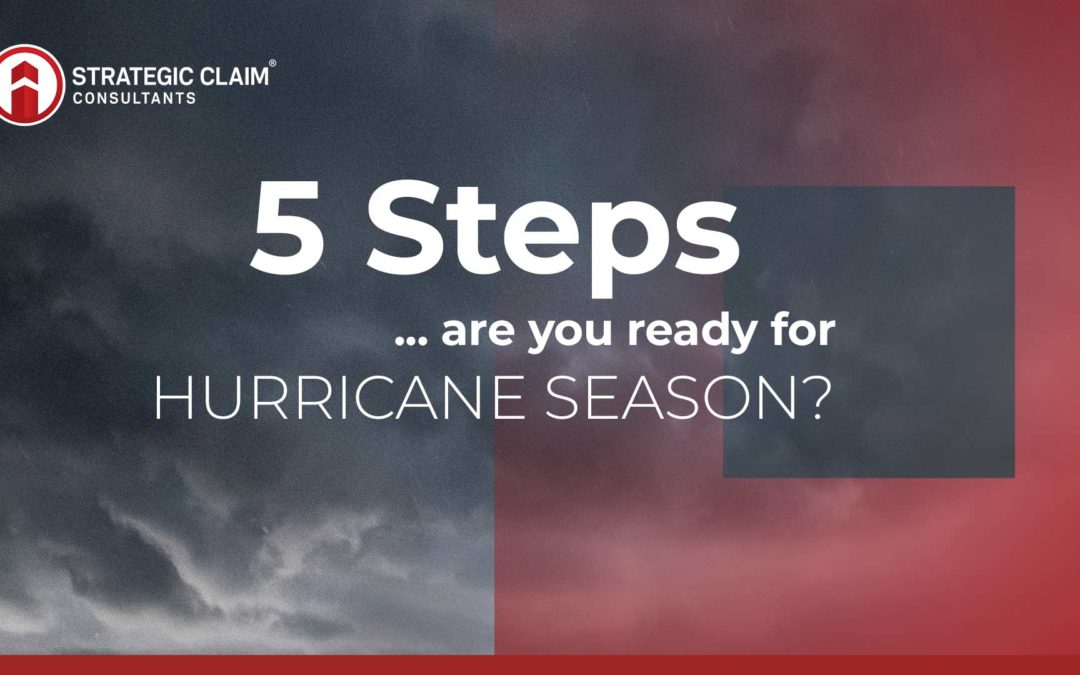Are you fully prepared for hurricane season? The Atlantic hurricane season starts in June and continues until the end of November, putting millions of Americans at risk of severe damage to life and property. While most of the conversation around hurricane preparation revolves around physical safety, it’s important not to forget to also be financially prepared in case of damage to your home or business. Here are five steps you can take to minimize your potential risk of loss:
- Review your insurance policy
Homeowner’s insurance may not be enough to cover all your losses in case of hurricane damage. Hurricanes often cause flooding, with certain areas at higher risk, so talk to an insurance agent to decide if you want flood insurance for more comprehensive coverage. It can take up to 30 days for a flood policy goes into effect, so decide early.
- Cash value or replacement cost?
Insurance policies are generally divided into actual cash value (ACV) and replacement cost value (RCV), with ACV usually being the cheaper option, but with less payout. If you have a ten-year-old bed purchased at $1,000 new, your insurance will only reimburse you based on the bed’s current estimated value. Cash value policies are also limited by deductibles: if the bed is valued at $700 and your deductible is $500, insurance will only pay you the difference of $200. Replacement cost value insurance will reimburse the estimated full cost to repair or replace your bed within the limits of your coverage and deductibles. Both these types of insurance are available at different prices and degrees of coverage, so talk to a professional to determine what is right for you.
- Take photos of your valuables
Make sure to take inventory of your property and photos of your valuables and all important documents, including insurance papers. Photos are crucial evidence when filing an insurance claim as they provide proof of the existence and condition of your items before damage occurs. Create an online backup so that you have constant access to the photos in case something happens to your copy or to the device you used to take them.
- Contact your state insurance commissioner
Insurance policies come in many varieties, with different premiums, deductibles, coverage, and so on. Policies also change from provider to provider and state to state. If you want a second opinion or general assistance in deciding which policies are right for you, you can consult the support hotline of your state insurance commissioner for professional help.
- If you need to make a claim, consider hiring a Public Claim Adjuster
In the event of a hurricane, the thousands of people filing a claim at the same time can make the process of receiving reimbursement from insurance very slow. Insurance company adjusters will arrive to survey the damage and discuss options with you. Remember that no matter what they tell you, it’s their job to pay you only the minimums their company allows for, and they have a lot more experience than you in such situations. A public claim adjuster can fight back for you, expediting the claims process and getting you greater compensation. The period after a hurricane is stressful, so hiring a public claim adjuster can save you a lot of hassle so that you can get back to normal as soon as possible.
To get immediate help, maximize your claim, or for more information, contact our Strategic Claim Consultants team, led by Brandon Lewis, or call 844.701.9995.

